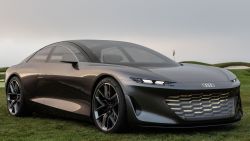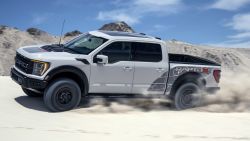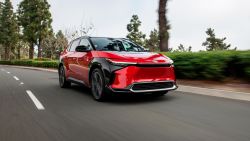Toyota is about to become the leader in US auto sales for the first time, taking away a title that General Motors has held for nearly a century.
It’s yet another sign that US automakers have lost their dominance in their home market.
As recently as 2005, Toyota was No. 4 in US sales, with GM, Ford and what was then known as DaimlerChrysler all in front, with a combined 57% of US sales between them. But in 2021, GM, Ford and Stellantis — the European automaker that owns Chrysler — had only 38% of the US market between them in the first nine months of the year. Even adding in Tesla only gets the US automakers to just over 40% of sales.
Both Toyota (TM) and GM (GM) are set to report year-end sales Tuesday. GM (GM)’s sales have trailed Toyota (TM)’s over the course of the first nine months, and its fourth-quarter results are expected to be behind Toyota (TM)’s, too. Both companies are forecast to report sharp drops in sales last quarter.
GM fell slightly behind Toyota in second-quarter sales, and it was way behind in the third quarter. Toyota is forecast by Cox Automotive to report a 31% drop in sales in the fourth quarter — but GM sales are expected to fall 46%, which would allow Toyota to pad its lead.
Whether Toyota is able to keep the US sales lead in future years is uncertain, according to experts.
“I wouldn’t expect Toyota to necessarily keep this lead,” said Jessica Caldwell, executive director of industry insights at Edmunds. “It’s not like GM is doing something magical all these years. They just have more channels to sell in and more brands.”
GM suggested it expects to be back in the lead soon.
“The semiconductor shortage, among other things, created an unprecedented set of circumstances in 2021,” the company said. “Even so, GM extended its lead in full-size pickups and SUVs. And 2022 begins with a gradually improving supply chain, and that should lead to growth in 2022 as we launch several new vehicles – including EVs and redesigned pickups.”
Chip shortage
A shortage of computer chips led both automakers to slow or temporarily halt production at many factories. That cut off inventory for dealerships and drove car prices to record levels.
A continued tight supply of chips in 2022 could force both automakers, and most of the rest of the industry, to build fewer vehicles than needed to meet demand.
“The chips are still the wild card for this year,” said Michelle Krebs, senior analyst with Cox Automotive.
Cox Automotive forecasts a 24% drop in US new car sales industrywide in the fourth quarter compared to a year ago.
Krebs said part of GM’s sales advantage in previous years was that it sold more of its car in fleet sales to businesses, such as rental car companies, typically at less than the retail price paid by consumers. But with a limited supply of cars, fleet sales have virtually disappeared this year, she said.
The horse race
The horse race between automakers is something that gets attention in the industry but not much from car buyers, said Krebs.
“I can’t tell you how many buyers don’t even know Chevy is part of GM or Lexus is part of Toyota,” she said.
Toyota took away the global lead in auto sales from GM in 2007, and for a few years the two went back-and-forth on global sales leadership with Toyota passing GM most recently in 2012. Now the race for global sales is between Toyota and Volkswagen.
But GM, which took the top sales title from Ford back in 1927, has been able to maintain its US sales lead all the way through other tough periods. Those include 2019, when members of the United Auto Workers union shut down GM with a nearly six-week strike, and 2009, when GM was forced to file for bankruptcy — temporarily or permanently closing many US plants, discontinuing its weaker brands and shedding more than 1,000 dealerships.
The outlook for GM appears brighter than its current woes, Caldwell said. It is betting big on an all-electric future, and Toyota is playing catch-up with its own EV plans.
“If EVs and autonomous vehicles are the future, GM is setting themselves up quite well,” she said.
Toyota, which builds 70% of the cars and trucks that it sells in the United States at five US plants, issued a statement saying it is “grateful to our loyal customers for putting their safety and trust in Toyota and Lexus vehicles.” It said its sales ranking has never been a focus or priority.
“The company’s focus has always been — and will continue to be — on being the best brand in terms of safety and quality in customers’ minds,” said Toyota.
Correction: An earlier version of this article misstated which year would see growth due to a gradually improving supply chain.

























